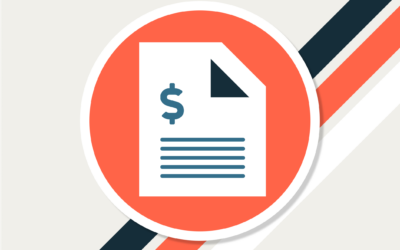Ramp and BILL are two well-known software that share similar features across AP automation, bill payments, and expense management. However, each platform also has unique features that the other lacks.
This detailed comparison of Ramp vs BILL takes a close look at the features, advantages, and drawbacks of each, to give you a thorough understanding of their capabilities.
What does Ramp do?

Ramp, established in 2019, is an integrated T&E platform that caters to businesses of all sizes. Apart from expense management, Ramp’s products include AP automation, procurement, Price Intelligence, and bill payment.
What does BILL do?

BILL handles accounting and expense management tasks for small and mid-market companies. While the platform lacks holistic P2P capabilities, it offers a wide range of tools to streamline accounts payable, accounts receivable, cash flow forecasting, budgeting, and expense management.
Ramp vs BILL: A comparison of features.
| Modules | Specific features | Ramp | BILL |
| AP automation | AI-powered invoice capture | ✓ | ✓ |
| Global vendor payment | ✓ | ✓ | |
| Approval workflows | ✓ | ✓ | |
| Amortization | ✓ | ||
| Vendor network | ✓ | ||
| Expense management | Pre-set budget | ✓ | ✓ |
| Receipt-scanning app | ✓ | ✓ | |
| Automated expense reports | ✓ | ✓ | |
| AI-powered suggestions | ✓ | ✓ | |
| GL coding and categorizations | ✓ | ✓ | |
| Procurement | Intake form | ✓ | |
| PO creation | ✓ | ||
| PO matching | ✓ | ||
| Price intelligence | ✓ | ||
| Travel management | ✓ | ||
| Invoicing/Accounts receivable | ✓ | ||
| Bill payment | ✓ | ✓ | |
| Corporate cards | ✓ | ✓ | |
| ERP integration | ✓ | ✓ |
How does Ramp differ from BILL?
The above table shows the general parity between Ramp and BILL. But, here are the areas where they differ:
- Procurement features: Ramp provides procurement solutions, such as the ability to build custom intake forms, Price Intelligence, PO creation, and PO matching.
- Vendor network: While BILL connects over 4 million vendors for fast payment, Ramp doesn’t have a similar vendor platform.
- Cards in local currencies: Ramp supports local issuing and debiting in 33 countries and reimbursement in 40 currencies, a feature that BILL lacks.
- Free tools: Unlike BILL, Ramp offers some free tools such as an expense policy template, an invoice generator, an expense categorization tool, and a charge finder.
Key features: Ramp.
Let’s explore Ramp’s core capabilities in more detail.
Accounting automation.

Ramp uses AI to automatically extract invoice data
Ramp’s Bill Pay software uses AI to extract invoice data, suggest coding and accounting rules, and flag duplicate invoices. The software 2-way matches invoices to their corresponding POs while routing bills to defined approvers. Ramp supports transaction amortization through NetSuite integration.
Once approved, bills can be paid via ACH, check, card, and international wire transfers in USD and foreign currencies. Ramp integrates with Xero, NetSuite, and Sage Intacct to sync transactions.
Expense.

Ramp captures receipts and matches them with transactions
Ramp allows users to manage expenses across travel, corporate cards, and purchases, giving them a consolidated view of spend data. While the mobile app makes it easy to upload receipts, the system automatically captures receipts from Lyft and Amazon. The ability to define budgets and create custom approval workflows helps admins monitor expenses before they occur. Admins can also generate unlimited physical and virtual cards with spend controls while local issuing is supported in 33 countries. Ramp supports reimbursement in 70 countries and 40 currencies.
Travel.

Admins can set custom travel policies, approval flows, and spend limits
Ramp has partnered with Priceline to help users find the best rates for hotels and flights. Admins can set flexible controls based on current market rates to better manage travel expenses. While setting up smart workflows based on team and amount, admins can split the savings to encourage employees to choose cost-effective options. Ramp checks bookings for compliance and categorizes expenses accordingly.
Procurement.

Consolidated insights on every purchase
Ramp’s procurement features include a centralized platform to collaborate on procurement and the ability to build a custom intake form that adapts to the user’s responses. Users can track vendor details, get reminders on contract renewal, and use custom fields to personalize the data that they want to track. Seat Intelligence connects to Okta to identify software usage trends while Price Intelligence surfaces the pricing benchmarks by analyzing past transactions.
Ramp syncs with Ironclad to allow legal teams to manage contract reviews while managers can approve requests directly in Slack or Microsoft Teams. Ramp also offers a consolidated view of purchase orders and requests, coding line items and syncing them to accounting software.
Ramp integrations.
Ramp offers no-code integrations with major ERPs, banks, and HRIS software.
Accounting software:
- Xero
- Sage Intacct
- NetSuite
- QuickBooks
Security/cloud computing:
- Okta
- Google Suite
- Microsoft Azure
Banking:
- Wells Fargo
- US Bank
- Citibank
- Bank of America
Productivity/HRIS:
- Gmail
- Slack
- Gusto
- ADP Workforce Now
Ramp pricing.
| Plans | Ramp | Ramp Plus | Ramp Enterprise |
| Pricing | Free | $15 per user per month (billed annually) | Custom pricing |
| Inclusions |
|
|
|
Ramp pros.
- AI-powered expense management: Ramp uses AI to capture invoices and receipts, auto-populate fields, and flag out-of-policy expenses.
- Instant card locking: Ramp supports instant card locking for out-of-policy expenses.
- Price Intelligence: Price Intelligence helps users save costs by surfacing pricing data based on past transactions.
Ramp cons.
- Basic AP workflows: Ramp’s AP workflows are not mature enough to support businesses with complex processes.
- No support for batch invoice processing: The software does not batch invoices to allow payments in one go.
- Lacks the ability to tag expense reports: Users can’t tag expense reports, which allows for seamless categorization of expenses.

Take a tour of Airbase.
Explore Airbase with a self-guided tour.
Key features: BILL.
Here’s a closer look at BILL’s features.
AP automation.
| Permission | Administrator | Approver | Auditor | Payer | Clerk | Accountant |
| Approve bills/vendor credits | Yes | Yes | No | No | No | Yes |
| Pay approved bills | Yes | No | No | Yes | No | No |
| Pay unassigned bills | Yes | No | No | No | No | No |
| Pay unapproved bills | Yes | No | No | No | No | No |
| Managa approval preferences and policies | Yes | No | No | No | No | No |
Admins can specify approval permissions based on role
BILL uses OCR technology to capture invoices that are emailed or uploaded via mobile phone. Admins can define approval policies based on role and/or dollar amount, choose default approvers, and approval groups. However, custom approval policies are only available in premium paid plans. The platform uses AI-powered Smart Data to populate data from previous bills, including payment terms, account descriptions, departments, items, and approvers. Apart from automating the approval routing process, BILL offers 2-way syncing with major accounting software.
Expense management.

Admins can set budgets and spend limit for each vendor
Expense management is enabled via BILL’s Spend & Expense module, which helps track and manage spend across cards, invoices, reimbursements, and subscriptions. Users can upload receipts on the Spend & Expense mobile app and the system uses AI to extract data, automate expense reports, and categorize transactions on purchases made via BILL corporate card. Admins can set budgets and spending limits for each budget. Users can view expense trends based on date range, categories, departments, clients, and more.
Corporate cards.

Unique virtual cards can be created for each vendor
Apart from the BILL Divvy Corporate Card that can be used to access credit and for all types of expenses, BILL allows admins to create unique virtual cards with spend limits for each vendor. These cards can be used for online, one-off purchases and subscriptions. Alternatively, users can add their existing Discover, Visa, Mastercard, or American Express cards to manage domestic and international payments.
Payments.

BILL automates ACH payments to vendors within the BILL network
BILL users can pay vendors in USD and in 106 currencies across 130 countries. When users add vendors, the platform automatically checks if the vendor is within the BILL network, a database of over 4 million vendors. Businesses can pay vendors via ACH, virtual card, or wire transfer. In addition to a free tool to calculate the foreign exchange rate, BILL offers managed Payments Services, where a specialist manages vendors and large invoices.
BILL integrations.
BILL offers 2-way sync with four major accounting software while allowing data import and export with other ERPs and systems.
Accounting/ERP:
- NetSuite
- Sage Intacct
- QuickBooks
- Xero
- Microsoft Dynamics
Collaboration:
- Slack
Tax/expense management:
- Tallie
- HubDoc
- Tax1099
- Earth Class Mail
BILL pricing.
BILL offers two modules — Spend & Expense that is free to use, and the Accounts Payable module with the following packages and pricing points.
| BILL modules | Plans | Pricing (per user per month) | Inclusions |
| Accounts Payable & Receivable | Essentials | $45 |
|
| Team | $55 |
|
|
| Corporate | $79 |
|
|
| Enterprise | Custom |
Includes all the features of the Corporate plan, plus:
|
|
| Spend & Expense | $0 |
|
BILL pros.
- AI-powered Smart Data: BILL’s Smart Data automates accounts payable, receipt matching, and expense categorization.
- Fast vendor payments: BILL automates ACH payments to vendors within the BILL network apart from offering a Pay by Card feature to fast-track payments.
- Supports invoicing and budgeting: Apart from professionally designed invoice templates, BILL makes it easy to create custom budgets for each vendor.
BILL cons.
- Lacks PO support: BILL lacks procurement features, such as intake and PO creation, while offering 2-way matching only with NetSuite, Sage Intacct, and QuickBooks.
- Lacks depth of functionality: While BILL caters to SMBs and startups, it lacks the depth of functionality in AP automation and bill payment that global mid-market and early enterprises require.
- Lacks advanced multi-entity support: BILL users can’t make payments to international vendors from the corresponding subsidiary.
Which is better: Ramp or BILL?
There’s no one formula that fits all! If your business has an established procurement process, Ramp would be the best choice, given its procurement tools, such as intake forms, Price Intelligence, and PO creation.
Ramp is also the obvious choice if you’re looking for an integrated travel and expense management platform.
BILL has some features that Ramp lacks, such as an extensive vendor network, faster bill payments, and accounts receivable tools.
If price is the primary consideration, Ramp scores over BILL by offering a free plan. Its paid plan, which starts at $15, is also more affordable compared to BILL’s packages.
Can these two systems be used together?
There’s no provision to integrate BILL with Ramp. Plus, you’d end up paying extra to access the same set of AP automation and expense management features.
Instead, opt for a single platform that has all the features that both BILL and Ramp have, allowing you to manage the entire P2P flow.

Users can add tags and split expenses across categories
While Ramp and BILL automate many tasks, they do not have the bandwidth to cater to the complex needs of modern businesses. For instance, BILL lacks procurement features and multi-entity support.
Ramp, designed with SMBs in mind, lacks mature capabilities, including deeper ERP integrations, seamless travel management, and flexible corporate cards.
So, how is Airbase a better choice?
Airbase provides more depth and breadth of capabilities across Guided Procurement, AP Automation, Expense Management, Corporate Cards, and bill payment solutions required for compliance and scalability. Airbase also stands apart from Ramp and BILL by offering a sophisticated fraud detection system along with a dedicated team to ensure fraud prevention.
It doesn’t just have all the features that Ramps and BILL lack, but goes beyond to offer seamless financial process automation. This results in improved cash flow, full visibility over spend, optimized vendor relationships, fast and secure payments — benefits that 90% of businesses expect from AP automation.
More importantly, these benefits are tangible. A recent report titled The Total Economic Impact of Airbase by Forrester Consulting found that Airbase’s holistic procure, pay, close platform got excellent results from a typical user who:
- Realized a profit of $140K from optimized vendor management and AP efficiencies.
- Saved $630K as a result of expense policy compliance, labor cost savings, and retired legacy systems.
Take a look at this table to see how Airbase is a superior choice:
| Modules | Features | Ramp | BILL | Airbase |
| Procurement | Intake form | ✓ | X | ✓ (Advanced) |
| Milestone-based advanced approval workflow, parallel and sequential flows | ✓ | X | ✓ | |
| Dynamic adaptation based on responses | ✓ | X | ✓ | |
| Step-by-step purchase requisition guidance | X | X | ✓ | |
| PO creation | ✓ | X | ✓ | |
| 3-way PO matching | X | X | ✓ | |
| Vendor self-management portal | X | X | ✓ | |
| AP automation | Approval workflows | ✓ Basic | ✓ Basic | ✓ Advanced |
| Approval groups | X | ✓ | ✓ | |
| ERP integrations | ✓ | Basic | Deep integration with NetSuite, Sage Intacct, Microsoft Dynamics. 70+ ERP integration support. | |
| Bill payment | Global payment | Supports payments in 195 countries and 40 foreign currencies. | Supports payments in 106 currencies across 130 countries. | Supports international bill payments to 200+ countries and 145+ currencies |
| Expense management | Integrated travel and expense management | ✓ | X | ✓ |
| OCR and ML-based receipt capturing | ✓ | ✓ | ✓ AI-powered (truly touchless experience) | |
| Receipt inbox | X | X | ✓ | |
| Unlimited physical and virtual cards | ✓ | X | ✓ | |
| Mileage tracking | ✓ | ✓ | ✓ | |
| Cash back rewards | X | X | ✓ | |
| Security/fraud prevention | AI-based fraud detection | ✓ | ✓ | ✓ |
| Advanced algorithms to ensure only approved vendors are onboarded | X | X | ✓ | |
| Fraud investigation team | X | X | ✓ | |
| Spend analytics | Spend dashboard | ✓ | ✓ | ✓ |
| Consolidated view of spend across categories, vendors, departments, spend types, and more | ✓ | X | ✓ | |
| Productivity metrics, including approval cycle time | X | X | ✓ | |
| Customer support and user interface | UI/UX | Outdated | Fair | Excellent |
| Customer responsiveness | Fair | Good | Excellent | |
| G2 rating | 4.8 | 4.4 | 4.8 |
See why Airbase is the best choice — book a demo with us!
 Jira Integration – Streamline Your Workflows
Jira Integration – Streamline Your Workflows  Ironclad Integration – Simplify Legal Operations
Ironclad Integration – Simplify Legal Operations  Asana
Asana 




